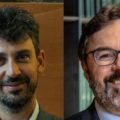What skills for tomorrow's leaders?
by Alessandro Cravera

The events of the past two years have severely tested the skills and strategies of political and business leaders. The pandemic first and the war in Ukraine then were the classic "black swan" for both. The government policies and strategic plans of companies drawn up before 2020 have been completely upset by these events.
In one of his recent article about Harvard Business Review Italia (July 2022), Marco Valigi writes that including geopolitics among the skills related to business management allows adopting a method of corporate governance that embraces complexity. I agree with your statement and would like to try to take another step in this direction.
Company management discounts practices and decision-making models which, although still considered as best practice to be perpetuated, represent today a powerful obstacle to the competitiveness of companies. I am referring in particular to two aspects: the search for maximum efficiency / optimization and the habit of conceiving business management as a finished game.
Measuring the quality of decisions and strategies taken by leaders on the basis of criteria such as efficiency, margin growth and process optimization leads the leaders to develop a sort of strategic myopia towards the evolution of scenarios. These parameters work very well in stable contexts where the risk of being surprised by unforeseen events is very low. However, in today's world, in how many and what areas do we have this kind of stability?
The economic-financial crisis of 2008, the pandemic and the geopolitical and economic effects of the recent war in Ukraine have made evident the growing complexity of the reality in which we live. Complexity arises from a high level of interconnection and interdependence of economic, social and political variables which determines the onset of effects - the so-called "emergencies" (in the sense of "emergence") that cannot be predicted a priori, especially from linear models of thought and action.
In a context like this, the search for the local excellent in a short time horizon risks generating very negative systemic impacts on a global level and leaders are often surprised by the unintended consequences of their actions and strategies. This happens because we have made the mistake of considering a stable scenario that is actually complex and constantly evolving. Think, for example, of the choices made by some governments on energy sources and at relocation and outsourcing strategies carried out by some large companies.
The second obstacle is given by continuing to consider business management as a "game over". We owe to James Carse the distinction between finite games and infinite games. The former have fixed rules, known players and an agreed goal at a given time. The latter, on the contrary, are practiced by even unknown players, they have no rules agreed in advance and there is no pre-established end.
When leaders conceive of management as a game over, they increase the odds that the game will actually end. If the only strategic perspective is the financial statements or, worse, the quarter, the decisions of the leaders can significantly affect the resources and competitiveness of the company. On the contrary, embracing complexity means recognizing its movement, evolution and therefore to manage a company or a country with a continuous dualism between present and future, between short and long term effects, between results and sustainability of the same.
How can we help leaders be more effective in such an uncertain environment? Introduce and develop skills of geopolitics - as suggested by Valigi - it is certainly important as it helps leaders to have an evolutionary perspective of the reality within which they move. We are used to thinking that the main characteristics of leaders are charisma, the ability to inspire people and influence them. In an interdependent world, these characteristics become ancillary. They are useful but do not distinguish an effective leader from one who is not.
We consider strong the leader who has a strong following, appears confident and transfers this confidence and his view of reality to others. In reality, such leaders risk adopting action patterns and strategies that are the result of their own personal beliefs and best practices. Their approach risks becoming ideological and generating negative effects on the system they must govern.
Exercise one leadership effective in a complex world it requires the propensity to move with a view to the "common good" and the development of two fundamental skills: the ability to understand the context in which one moves (context reading), to shape it (context shaping).
For a leader, moving with a view to the common good is not a merely ethical choice. In an interconnected reality it allows you to adopt strategies that reduce potential negative impacts on the system and favor a positive evolution trajectory of the ecosystem in which the company operates. To this end, leaders need to anchor their actions to the real context they are facing and its potential evolution by not being influenced by bias and ideological visions of reality. In this sense, geopolitics represents a fundamental enabler for the development of context reading.
But adapting to the context is not enough. The actions of leaders must be generative, must shape it to create the best conditions for achieving results and for their sustainability over time. Think about how the world would change if leaders with such skills were at the head of global companies and major national governments. We are not talking about entrusting leadership to idealists who design a utopian, ideological and unrealizable world, but to architects of the future, aware of their limits, who work to bring out the best energies and orient strategies towards sustainability and the evolution of the reality within which they operate.
Alessandro Cravera, Partner and CEO of Newton SpA Member of the Faculty of the Executive MBA of ALTIS Università Cattolica and 24 Ore Business School.






